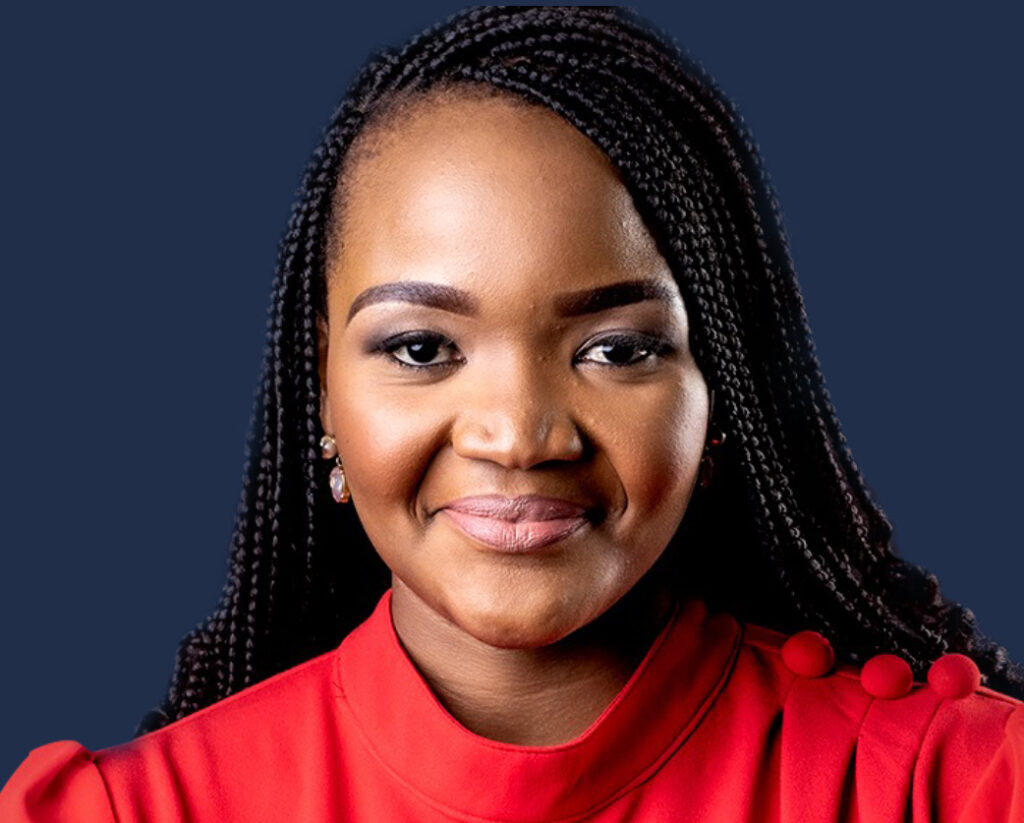Makgau Dibakwane, CEO of Fundi Capital, says it is crucial for industry players to collaborate to ensure that students thrive
Student success is about more than ability; true success requires an integrated, holistic and student-centred approach that takes personal wellbeing, environmental and socioeconomic context, and institutional and societal support into consideration. This was according to a panel of experts speaking at the thought leadership webinar Enabling Student Success. The webinar was hosted by Fundi Capital, South Africa’s leading education finance and fund management specialists, in partnership with the Mail & Guardian, and was moderated by award-winning journalist and broadcaster Cathy Mohlahlana.
Fundi has the goal to make education work better, together as a single-source platform for all things relating to the learning journey. Makgau Dibakwane, CEO of Fundi Capital, said it was critical for industry players to engage on the burning matter of student success, and find ways to collaborate to accelerate the adoption and execution of the necessary solutions. “At Fundi we are passionate about playing our role in enabling student success, and as such we have been designing and developing a plethora of tools that we believe will support and enable student success.”
 Dr Oliver Seale, Director of HELM
Dr Oliver Seale, Director of HELM
Dibakwane acknowledged that despite the successes of recent years, the numbers still paint a grim picture. Thirty-six out of every 100 learners passed matric, and only 14 of those qualified to attend university; over the course of a four-year degree, there is a 33% dropout rate among enrolled students. “At Fundi, our opinion is that we need a very simple approach, but a complete and holistic one, to really enable student success in a tangible way.”
Dr Oliver Seale, Director of the Higher Education Leadership and Management (HELM) Programme at Universities South Africa (USAf), delivered the keynote address. He opened the conversation by acknowledging that concerns about student success have been around for as long as humans have been learning: “This issue has been with us since the beginning of time. Education is about two things. The first is the academics, which is important for personal and professional advancement. The second is a more personal component: the notion of formation of the individual finding themselves and finding their voice within a university environment.”
Seale said the definition of student success is broad and varied, and has evolved over time: “I think generally we agree that it means students enter our gates and eventually exit as successful young graduates who are constructive contributors to society and to the economy.”
Digital divide grows daily
Student success is, however, embedded in a wider context and is dependent on much more than what the university does and how the institution engages. Seale said this became evident during the Covid era, when higher learning saw a shift from face-to-face contact to online, technology-mediated teaching and learning.
While privileged students from middle-class urban and suburban homes have always had an advantage over poorer students from rural backgrounds, the divide between the haves and the have-nots has never been clearer.
According to Seale, it is important to understand that students, just like the universities they attend, are not a homogeneous group: “Every university is quite unique in its student body and student profile, and the challenges they face in relation to student success are as unique. We need to move to a point where we have a more holistic approach and more integrated approach to the way we understand, define, conceptualise and change the narrative of student success.”
As South Africa enters the third year of the pandemic it is evident that significant progress has been made with digital migrations, transformations and technology-mediated learning, but challenges still remain. “These are not just challenges of devices or data; these don’t help when there is no electricity at home,” Seale explained. “It is also not enough to just have a connection; a student needs a sustained connection.” He said access remains limited, especially for lower income students from informal settlements and rural areas that lack infrastructure and service delivery.
 Moderator Cathy Mohlahlane
Moderator Cathy Mohlahlane
Competence, Confidence and Context
He summarised the three Cs of student success as: Competence, Confidence and Context. “Of these, context is perhaps the most influential, because context can often trip up your best laid plans for student success, especially when one looks at the environments that students come from,” he said. “Universities approached the shift to digital and technology mediated learning by enabling students with devices and data, but if your environment is not conducive …” he shook his head. “Of course it will impact your studies!”
Finance remains one of the key enablers to student success. Seale said it is heartbreaking when students drop out when it could have been avoided with interventions and better support. “Most of our students are not only first-generation graduates if they complete their degrees, they are also first-generation post-secondary education students, and it is heartbreaking to see the devastation for them and their families when they don’t complete their studies,” Seale said. “We need to strike a balance between who picks up the tab and who covers the cost of education, while still ensuring that access to quality education is not prefaced or premised on finances or the student’s financial ability.”
Integration needed across domains of success
Student success cannot be seen as occurring in a vacuum, and must be considered across four domains. The first is the personal level, and includes student mental and physical health and wellbeing, as well as the environment they come from and the support they have, both inside the institution and in the outside world.
At the public or societal level engagement is key. This means communities must take ownership of the universities around them, and institutions must really know their people, sitting at the front and centre of the immediate communities they serve.
At the social level student success includes cultural, spiritual, community and familial support mechanisms that exist for students, while at an institutional level success depends on whether the university environment is empowering and enabling. “We need to shift to ensure synergy between those four domains, looking at student success more holistically and in a more integrated way,” Seale explained.
Some issues, such as the national unemployment rate, play out on a macro level: “It’s extremely disconcerting when you see that you put so much effort and energy into advancing yourself, especially when you come from a disadvantaged community or poor background, and when you step out, no one’s willing or able to employ you and there’s no opportunities; I think that can be soul destroying for an individual.”
Preparing for the future of work
For this reason, he said universities must also change the way they think about preparing students for a different kind of work. “We have to think about much broader ways of ensuring that they have an opportunity, not merely in the formal economy, but opportunities for them through entrepreneurial thinking, gig-trepreneuring and other ways of doing things.”
Student success is vital for the success of the nation: “If our universities fail, our country fails. We have to face this as a collective. It is in the national interest and we must pool our resources and our knowledge bases — we need universities working with the government, with the private sector, with civil society and with each other as a collective, because only as a collective will we resolve these issues.”
Vice-Chancellor and Principal of the University of Venda, Dr Bernard Nthambeleni, agreed that challenges are exacerbated when the majority of students admitted to universities come from poor socioeconomic backgrounds and already carry one or more risk factors for non-completion of studies.
Specific, student-centred strategic planning for success
At the University of Venda, he said, the student-centred approach in planning support and interventions is based on the student profiles received during registration and enrollment: “When it comes to student success, it is not enough just to throw money at the problem. There’s much more that we need to do. Student drop outs are often not tied to student ambitions, or a lack thereof. There are so many factors that influence this; for example, imagine going to class hungry every day, and seeing other people who passed the degree still looking for a job … What would motivate such a student to stay in the system?”
Rapelang Rabana is the founder of learning-tech startup Rekindle Learning. She said it’s time to get specific when talking about solutions, because often there is no differentiation made between the support needed at the early stages of a student’s studies and the support they need later in their learning journey, when they have mastered a topic but now have to demonstrate high-level thinking.
These also differ from the support needed when they have to take a skill and apply it in the workplace. “We mash this all together under this umbrella of learning and education,” she said. “But the interventions you can provide to students at different stages of learning are actually fundamentally different; if we did think about these things more clearly, then we would be able to leverage technology at the right points in the learning journey.”
Former president of the University of Pretoria’s Student Representative Council (SRC) David Kabwa said student success boils down to one word: access. “I use this word very deliberately, because access is key to student success, particularly in three areas, namely student finance, accommodation and academics. If students cannot access these three areas, then it is next to impossible to find a way forward for success,” he explained.
Dibakwane had the final word: “It is clear that we need a collaborative approach that includes students, parents, institutions, corporate sponsors and government — everyone needs to make sure that we work together to solve these problems, because none of us can solve them alone.” — Jamaine Krige
For more details, visit: https://www.fundi.co.za/